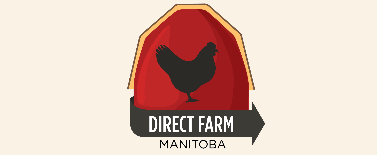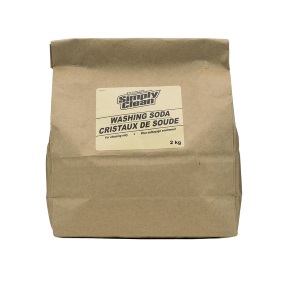Cleaning House
 Tuesday, July 24, 2018 at 6:13AM
Tuesday, July 24, 2018 at 6:13AM by Wade Wiebe
Walking down the cleaning product aisle last week, I inhaled the heady scents and marvelled at the variety of products available. It seems that every month there's a new-and-improved formula for washing dishes or doing laundry. This one smells like a Hawaiian waterfall. That one, like fresh mangoes or wildberries. White and blue powders with red "activation pellets", brilliant green, pink and yellow liquids... all new formulas. I don't buy any of that stuff, and haven't for years now. Let me tell you why and how.
At some point after moving out on my own, I realized that I didn't actually know what was in the cleaning supplies that were always at hand growing up. I started to look at what I was breathing, rubbing on my skin and pouring into the watershed to Lake Winnipeg. Parbens, Sodium lauryl sulphate, Propylene glycol, Triclosan, fragrances ... turns out that "mountain spring" fresh scent isn't made with glacial springwater and alpine flowers after all. In fact, I learned that the majority of ingredients often had nothing at all to do with cleaning. Most of what I was buying was filler, or chemical agents to make the product feel smooth or look appealing. Most of all, I was buying packaging that was too often unrecyclable and that I knew only existed to appeal to my psyche and wallet. Why was I spending so much money on filler, dangerous chemicals, and throw-away packaging? No more.
So, I researched my alternatives. Every green-living homemaker with a blog has their favourite recipe for cleaning supplies. While they do vary, there are four main things you need. First, you need an ingredient to prepare the water. You want your water to readily take up the minerals and deposits, so that means softening it. Salt, borax, baking soda and washing soda all do it, but washing soda is best. Second, gentle abrasion is sometimes called for. Baking soda is good for that, so keep some in an empty spice shaker. Third, you'll need to cut grease. Get a basic soap like Ivory or Dr.Bronner's bar soap, or find a local soapmaker and get their simplest cheap soap. If that's too expensive, seriously look into making your own for under $1/bar. It's fun and easy if someone shows you how - and South Eastman Transition Initiative has had workshops to do just that. Also get some ammonia from a hardware store, which cuts grease and disinfects at the same time. Fourth, you need something that will rinse away the residue of your cleaners. Get some citric acid powder from Stoney Brook Pantry, and vinegar from Superstore. Now you're stocked up - let's start with the hardest washing task first:
Laundry: One part washing soda, one part shaved soap (Use Zote, if you want chemical brighteners for whites). Make the mixture super-fine by mixing in a blender. Use only 3 Tbsp/load, and add vinegar to the rinse cycle. Line dry in the sun if you want an actual fresh scent and the extra disinfecting power of ultraviolet light, which kills bacteria. Note: Laundry is a science. For serious stains and whites, read "10 Things You Should Know Before Making Homemade Laundry Detergent" at littlehouseinthesuburbs.com for an excellent overview.
Dishwasher: In the "Pre-wash" compartment, put only washing soda. Same goes for the "Main wash" compartment, BUT add about 1 tbsp citric acid as well. You could add your citric acid to the mix beforehand, but it tends to clump up. Citric acid is essential if you want to avoid film on your clear glasses. Also fill the "Rinse agent" reservoir with pure vinegar for the same reason.
Floors: Use 125 mL (1/2 cup) of ammonia. Just remember, never mix bleach with ammonia!
Greasy pots, pans, stoves and kitchen sinks: Just like your baking soda, fill an empty spice shaker with washing soda, and sprinkle liberally. Scrub with a brush.
Windows: Use vinegar or ammonia in hot water, and wipe with newspaper to get a streak-free finish.
Toilets: Pour in 125 mL (1/2 cup) of ammonia. Brush all sides, then let it sit overnight to really disinfect. For rust stains, you may need a commercial cleaner which is made up of a strong acid specific for reacting with rust.
Bathtub/sinks/countertops: Sprinkle some baking soda all over the countertop/bathtub. With very little water, get in there with a rag and use the gentle abrasion of the baking soda to take off the grime. Rinse with water. Don't worry - it won't mar your tub. Use a stiff brush for grout lines.
In all recipes, you can get a better-than-store-bought fresh scent by adding your own essential oils or fragrances. While I still keep some commercial products on hand, these few ingredients accomplish 90% of my household cleaning while protecting my family, the environment, and my pocketbook.
And finally, a tip: You can get a huge amount of washing soda for nearly free by buying a 20kg bag of baking soda (sodium bicarbonate) at La Broquerie Ag Co-op for $25.69. Heat on a cookie sheet at 200C (400F) for an hour or two, stirring periodically. The sodium bicarbonate burns off one of its carbon molecules, creating sodium carbonate: pure washing soda! You’ll notice that the end product is slightly more white and granular than the baking soda was.



